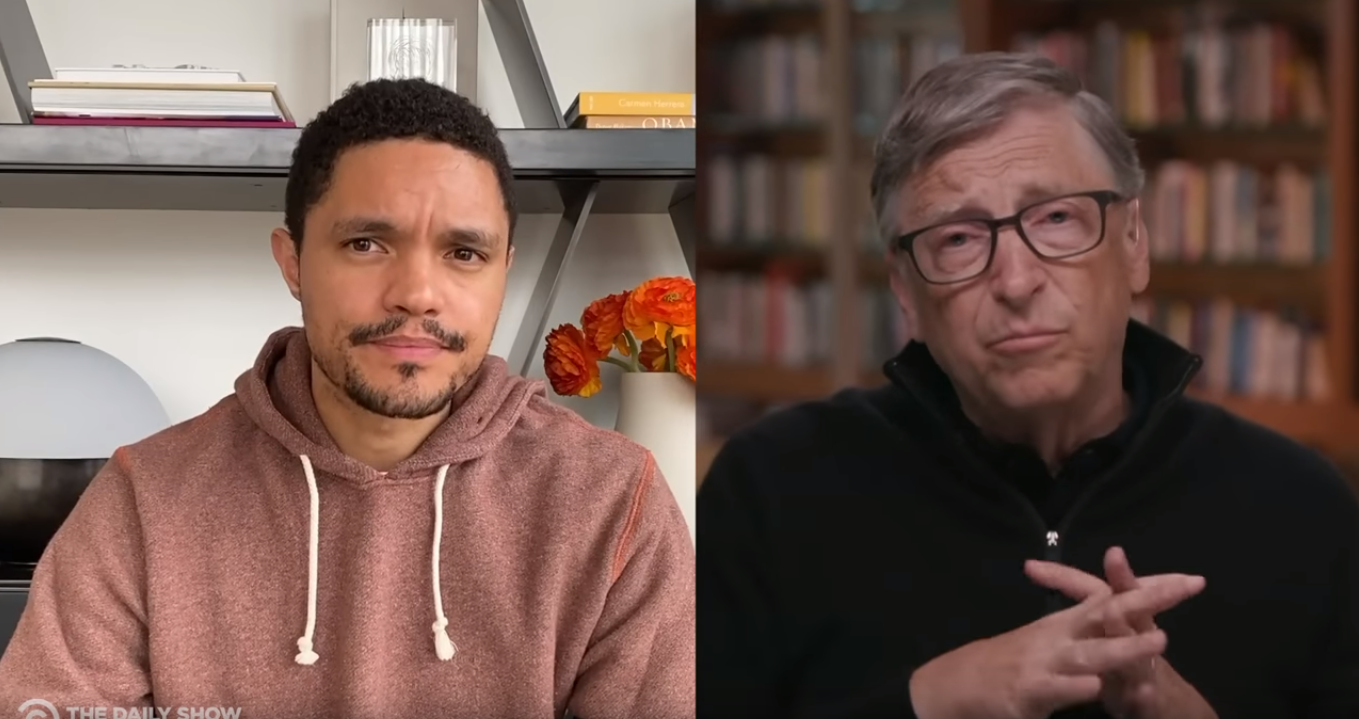When asked about which country the U.S. should be looking to for models that work and can be applied, Bill Gates, Microsoft co-founder who made the company one of the world's most valuable technology firms, said countries have differences, but "is very good news that China, although they are maintaining a lot of measures, they are not seeing a rebound."
"Thank goodness, if we were seeing a big rebound there. The idea you could keep it under control once you have a large number of cases, like the U.S. does and many countries in Europe, would seem almost impossible," he said in the Daily Show with Trevor Noah on Thursday.
"They are not seeing cases coming back, even though they are sending people back to the factories, sending people back to schools," Gates added.
"China ended up with 0.1 percent of their population infected. Our goal is to stay so it's only a few percent, so at least the medical penalty isn't gigantic even though the economic penalty will be very large," he added.

Trevor Noah (L) and Bill Gates (R) on the show
Trevor Noah (L) and Bill Gates (R) on the show
According to the latest data published by Johns Hopkins University, confirmed cases now exceed 1,000,000 globally, with the death toll hitting over 55,000. The U.S. now has over 245,000 COVID-19 infections, and over 7,000 deaths. President Donald Trump has extended social distancing guidelines to April 30.
He also announced in a press briefing that the government is now recommending Americans to wear cloth face coverings on a voluntary basis as many people have proven to be asymptomatic.
Washington D.C., and the surrounding suburbs in Maryland and Virginia, known as the "DMV" area, officially entered a loose lockdown on Tuesday. Maryland Governor Larry Hogan, Virginia Governor Ralph Northam and D.C. Mayor Muriel Bowser each issued mandatory stay-at-home orders, prohibiting residents from leaving their homes.
But Gates also noted that China and U.S. are very different. "The lockdowns we do won't be as strictly enforced, they are very very important. The way we do contact tracing won't be as invasive and won't be quite as perfect."
As many people are wondering whether relatively successful epidemic control experiences in other countries can be applied to the U.S., for example, like South Korea, a country with a medium-sized infection but got the curve bent after enforcing quarantine, contact tracing, and other measures, Gates explained the epidemic in the U.S. is more widespread than other countries.
Having communicated with various governments globally in and around with their COVID-19 response, he believes the situation in America is partially like the city in Hubei Province in China which had a lot of cases, Wuhan. Data shows Hubei Province accounts for about 82 percent of the total confirmed cases, with Wuhan alone claiming over 50,000 patients.
With the number of confirmed COVID-19 cases worldwide topping the one million mark, WHO Director-General Tedros Adhanom Ghebreyesus highlighted the significance of the financing health response, calling it an essential investment in saving lives, as well as in the longer-term social and economic recovery.
"We are in a shared struggle to protect both lives and livelihoods," Tedros said, suggesting countries to ease the burden on their populations through social welfare programs to ensure people have food and other life essentials in the short term.